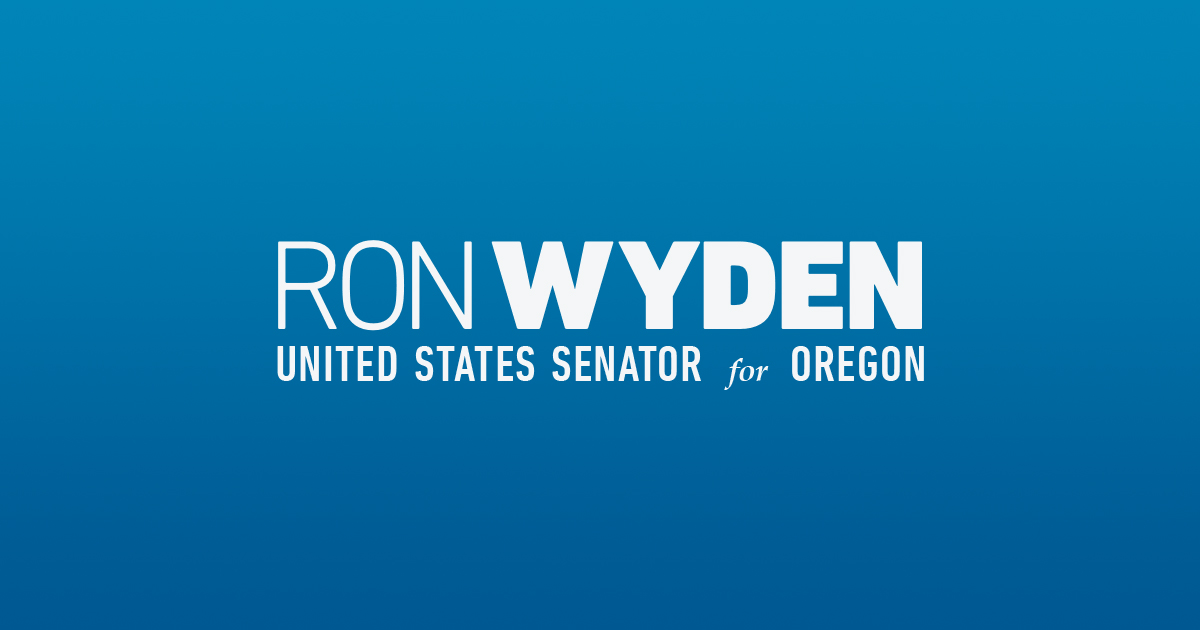Source: United States Senator Ron Wyden (D-Ore)
Washington, D.C. – U.S. Senator Ron Wyden, D-Ore., and Sen. Cynthia Lummis, R-Wyo., today urged Attorney General Merrick Garland to end the use of paid confidential informants to obtain large quantities of Americans’ personal information without court oversight. The senators called for new transparency about the use of informants to acquire private data.
Federal investigators have documented the Drug Enforcement Administration’s (DEA) use of paid informants in the rail and travel industries to obtain passenger lists, ticket and baggage information, birthdates, and other private data. The agency also paid a shipping company employee to open and search packages, according to the Department of Justice Office of Inspector General report.
“When DOJ components seek to acquire and use a U.S. company’s customer datasets, they should direct all requests for such data to the organization’s lawyers, and should not instead pay low-level employees,” the senators wrote. “To that end, we urge you to strengthen the DOJ’s policies to prevent this outrageous practice, which undermines the rule of law, violates Americans’ privacy and harms the reputations of American companies.”
The DEA changed its policy in 2016 to prohibit the use of confidential informants to acquire private data from government and quasi-governmental agencies like Amtrak. However, according to the Congressional Research Service, the policy change does not prohibit the use of informants to acquire private data from companies and other non-governmental organizations.
The full letter to Attorney General Garland is available here.
Wyden and Lummis requested unclassified answers to the following questions by May 8:
1. In a June 2016 letter to Senator Grassley, the DEA claimed it had revised its policies on the use of confidential sources. Please provide us with a copy of the revised policy and whether it is still being applied.
2. The Attorney General’s Guidelines for Domestic FBI Operations state that the DOJ Office of Privacy and Civil Liberties assists with oversight and ensuring the activities of all DOJ components are lawful, appropriate, and ethical. Has the Office of Privacy and Civil Liberties reviewed and approved the DEA’s revised policy on the use of confidential sources?
3. Please identify each of the companies and non-profit organizations from whom the DEA is currently, or has in the past ten years, obtained customer data through a confidential source, rather than through an official disclosure authorized by that organization’s legal department.
4. Has the DEA or any other DOJ component paid a telephone, internet service, or other communications provider’s employees for customer data between 2010 and 2023? If yes, please identify the provider, the number of users whose information was obtained by the government, and whether those individuals were ever told about the government’s extra-judicial surveillance of their communications data?
5. Has the DEA offered legal immunity to the employees of U.S. companies and government agencies from whom customer data was purchased by DEA agents in violation of the informants’ employment agreements, and potentially state, federal, or foreign law? If yes, were these offers of immunity approved by officials within the DOJ, and if so, please identify them and their position at DOJ.
6. Based on the DOJ’s Guidelines on Communications with Represented Persons, discussions about an organization’s private records should go through corporate counsel or the organization’s general counsel’s office. How is the DEA’s practice of circumventing counsel by hiring confidential sources to gain access to private records in line with the DOJ’s guidelines?
###
